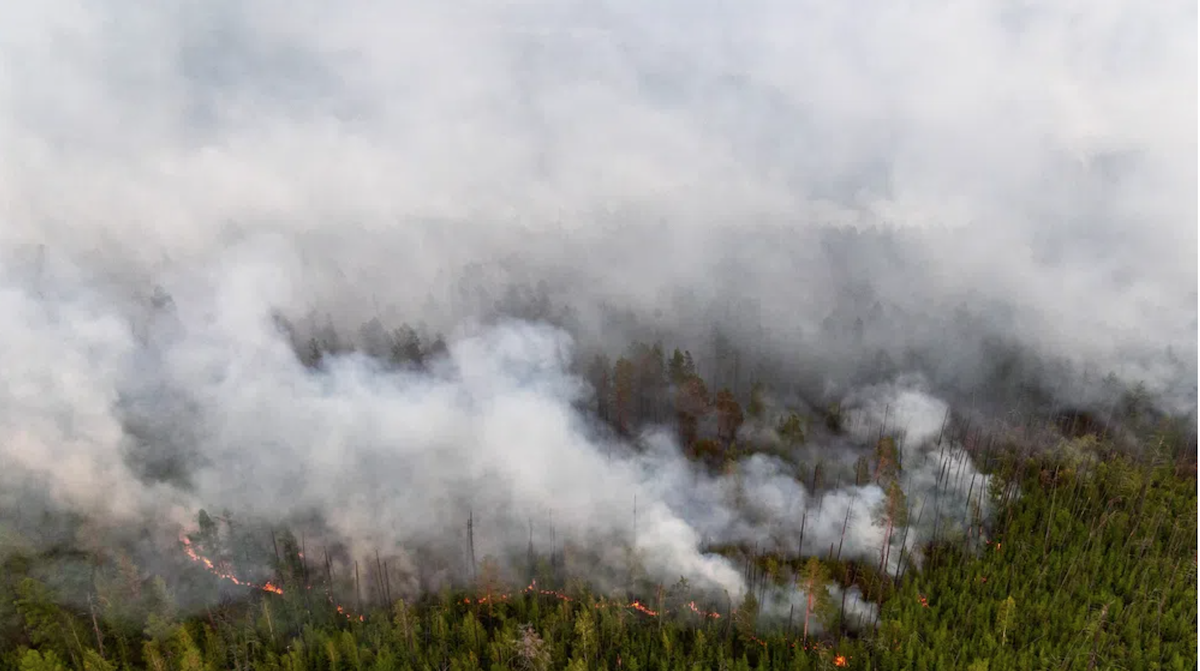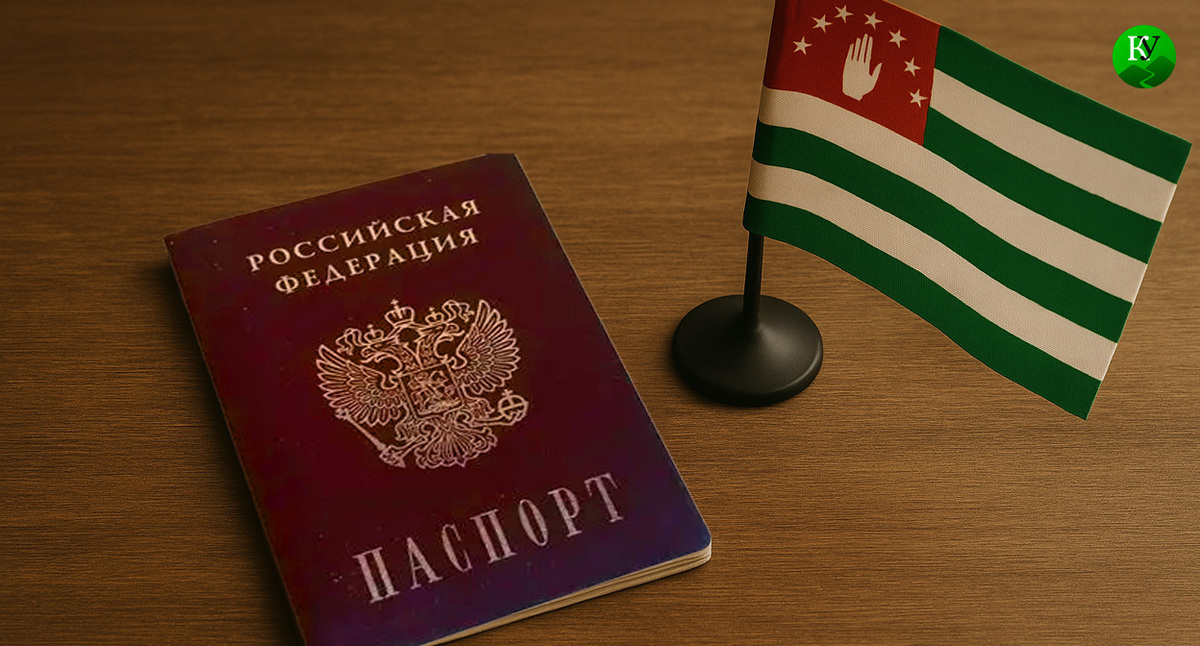Russia: why is Yakutia burning?
Forest fires in Yakutia
Forest fires this summer have become a disaster all across the world. Yakutia (Sakha) is a huge and sparsely populated region in Russia, where the fight against fire has been going on for many months. Journalists from the Russian Novaya Gazeta visited the scene to find out why the forests are burning and whether the state is doing enough to combat the wildfire.
Full version of the reportage on the Novaya Gazeta website.
Sakha has been burning for the fifth month already. The fires covered eight million hectares of forest, and they have never been so large-scale before.
Nevertheless, the turning point came in September: the fire started to die out slowly. News reports today are less likely to report new fires and cover the extinguished ones instead.
The damage has not been calculated, although it is already clear that it will be in the billions – the authorities are talking about this directly. But no numbers can count something else – the lives lost and the horror experienced by people.
Remaining
Elbagi Igityan was 43 years old. He worked as a bulldozer driver for a road construction company. He volunteered to put out the fires.
“He considered it his duty to go there”, says Levon Agamiryan, who worked with Igityan. – I did what I could do best – I dug mineralized strips with a tractor.
Volunteers recall that Igityan disappeared on the evening of August 9.
The wind that day was not strong – 4–5 meters per second, but the crown fire spread very quickly. In the morning the fire was still far away, and we only felt a slight smell of burning, and by the evening the fire got close to our group. The Elbugs said that he had to leave, but he hoped that he would have time to dig the strip. He said: “There is still a little left. We cannot let the fire to pass here”. There was a village behind us.
Igityan’s group retreated without him. He did not return either at night or in the morning.
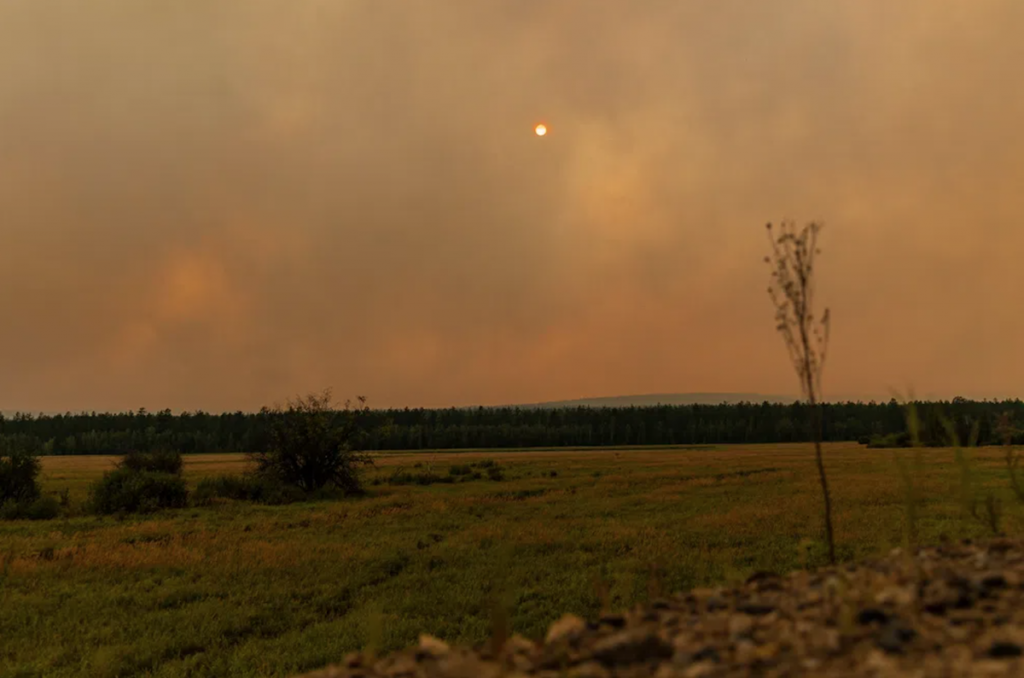
Due to the fire, it only became possible to organize searches on August 11. The man’s burnt body was found 20 meters from the tractor.
Elbagi Igityan’s colleagues admit that they had little contact with him. They only say that he was hardworking and extremely purposeful: if he decided to do something, he brought it to the end. On August 9, he decided to put out the fire to the end.
Elbagi came to us recently – only in the spring. He has a teenage son in Armenia. He planned to marry a second time. But it turned out that he gave his life for Yakutia.
The authorities of the republic posthumously awarded Elbagi Igityan with the insignia “Civic Valor”. To help his family, the residents of Yakutia have collected more than a million rubles.
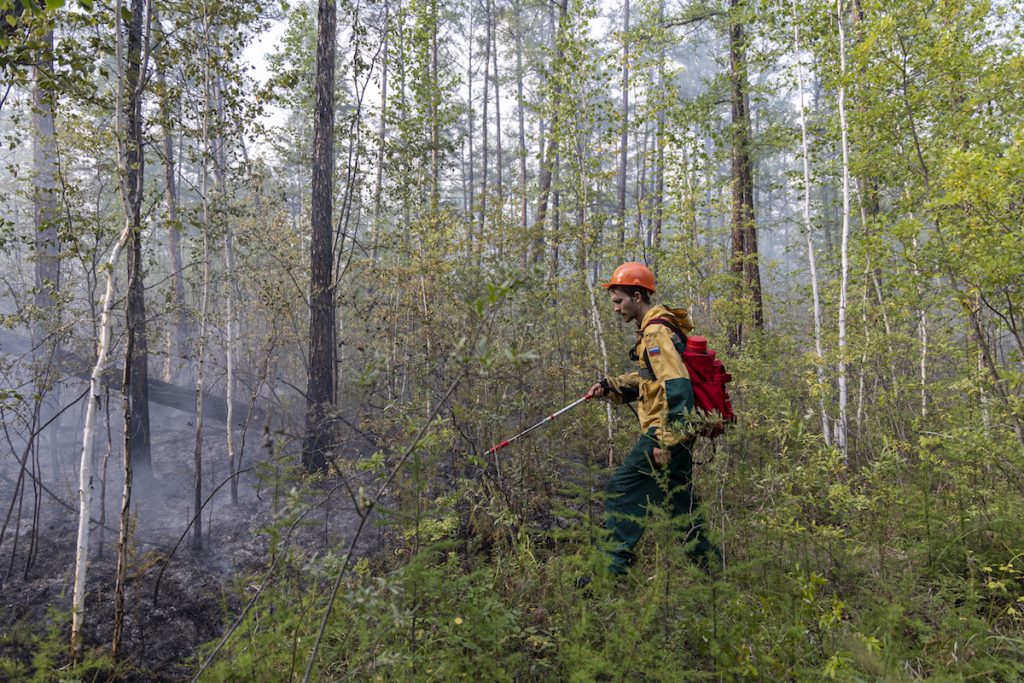
In the ashes
Russkaya and Keskil streets in the village of Byas-Kyuel are no longer there. The fire came here from the northeast and took away 31 houses, leaving a third of the population homeless – 185 people. Destroyed livestock: 9 cows, 8 pigs, 20 chickens, 123 rabbits.
The ashes fringed by the black forest are still smoking. Charred logs and cracked slate lie here and there. On the piles of coal and ash that remained in place of houses, there are baby baths, burst iron basins, pots. There is a burned-out tractor in the middle of the field.
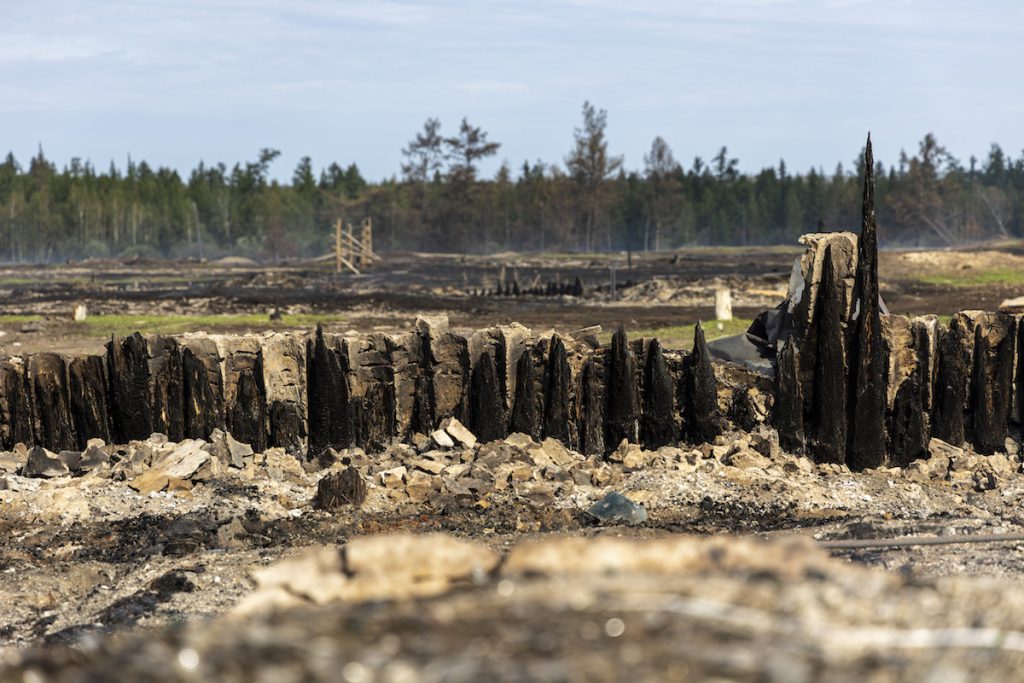
Local residents were waiting for the fire: a week before they began to water the roofs of houses, organized night shifts. The authorities reassured them: they said that the emergency services and volunteers were working in the ulus, they would not let the fire go near the houses. The fire was, indeed, far away. But on August 6, a storm happened: the wind at a speed of 20 m / s drove the flame straight to the village.
“In the evening, employees of the Ministry of Emergency Situations arrived, told us to gather people and dig a mineralized strip”, says Anatoly Popov, a resident of Byas-Kyuel. – On the morning of the 7th, all the village peasants, about a hundred people, came out with shovels. Digging for an hour, two, three, suddenly we hear a hum. So the fire was near. “Emcheesnik”, who worked with us, shouted ‘We are grouping. We’re leaving’. In 20 minutes the fire has already approached the half-dug strip.
The sky turned red. Sparks, coals and burning cones flew into the houses that stood right next to the forest. At first, the hay started birning.
“People rushed to extinguish it. Some with pomps, some with buckets, some had knapsacks with water”, Anatoly recalls. But then slate began to explode on the roofs.
The hot pieces flew overhead, gnawing into the ground, burning the grass. It was no longer a question of saving houses – it was about saving lives. The villagers fled, leaving behind their livestock and everything they had acquired. Pensioner Kirill Ivanov barely managed to put his six grandchildren in the car.
“The two fire brigades that were on duty on Kaskil Street turned around and drove to the neighboring streets. They began to water the houses that were not yet on fire”, he says. – My brothers Nyurgun and Dulus tried to defend our house to the last, but what could they do with one pump and shovels?
Evacuation began in Byas-Kuele. People drove away in whatever they could: in overcrowded cars, on a school bus. 75 kilometers along a burning dirt road to the saving route Yakutsk – Mirny, where the fire has not yet reached. From there – to the regional center Berdigestyah. Fire trucks, mobilized military men and special equipment came to meet them in the village.
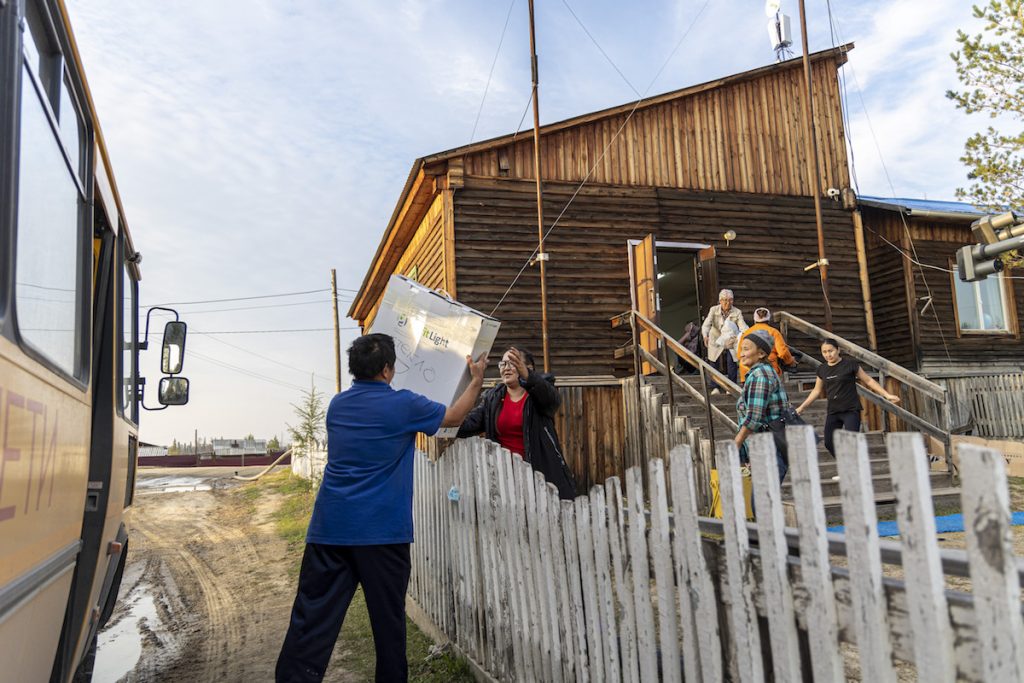
Hundreds of employees of various departments are now involved in the restoration of Byas-Kyuel. The locals do not understand only one thing: why the same forces could not be thrown into the prevention of a fire and why, when one fire after another captured rural houses, Russian B-200 amphibious aircrafts were busy extinguishing the distant Turkish Antalya.
Why do forests burn
On July 19, when the area of forest fires in the republic reached 1.5 million hectares, a volunteer headquarters was opened in Yakutsk. While professional firefighters often find volunteer assistance superfluous, the decision turned out to be the right one: volunteers played a key role in the fight against the fire.
In a few days, 1,268 people were mobilized – this is how the inhabitants of Yakutia stood up to defend their land.
Heroism is always the result of someone’s mistake. An attempt to fix it. Fires in Yakutia would not have been so large-scale if it were not for man.
The first fires were associated precisely with the human factor: with the fall of grass and the burning of felling residues. There were more than fifty such cases from mid-May to mid-June. And all these fires were near settlements, – says the press secretary of the regional department of the Russian Emergencies Ministry Ksenia Rakhmatullina.
Up to 90% of forest fires have occurred in the republic due to human fault, ”, says Grigory Kuksin, head of the fire-prevention project of the Russian branch of the Greenpeace environmental protection organization.
The season of fires this year, as in previous ones, began with burning grass in pastures. This is a tradition of local horse breeders and cattle breeders … In summer, fires predominate because of bonfires: in Yakutia, as in many regions of Siberia and the Far East, it is not customary to extinguish them. Fishermen, hunters, geologists, forest users simply have a low level of culture of handling fire.
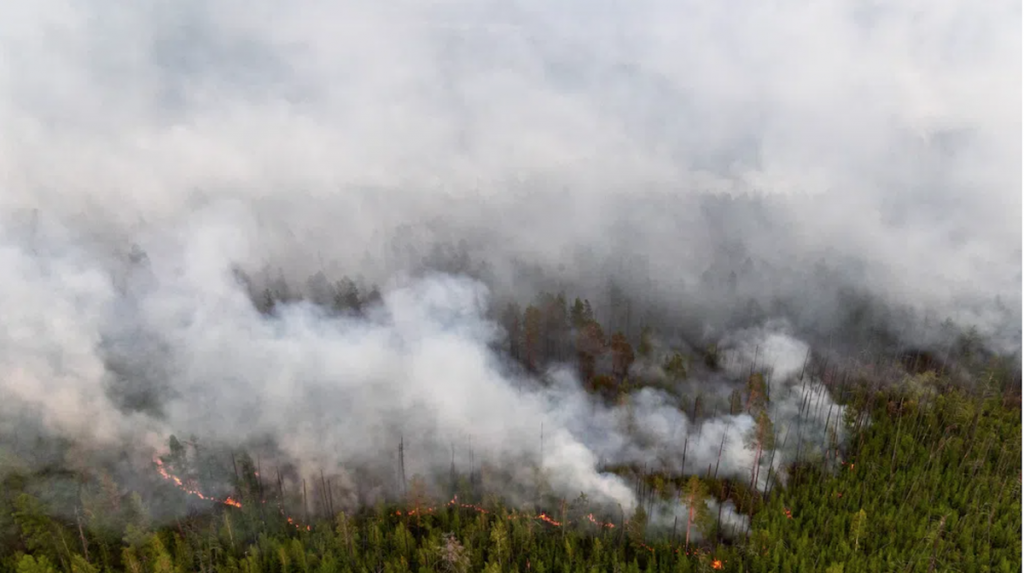
“The fire was successful simply because it was not extinguished”, says Kuksin
– Yakutia is almost not protected from fires. Most of the republic is “zones of control”: these are forest areas, where fires are officially not allowed to be extinguished. In addition, the funding allocated for the protection of forests in Yakutia is hundreds of times lower than the sum needed: while in Central Russia 180-200 rubles [about $ 2.5-2.7] per hectare are allocated, in Yakutia it is 6 rubles per hectare [about 8 American cents]. This is due to the fact that the population density is taken into account when allocating funds for forest protection, and it is low in the republic.
In a conversation with Novaya Gazeta, First Deputy Prime Minister of the Sakha Republic Dmitry Sadovnikov stressed that the regional authorities would seek to revise the formula for allocating funds for forest protection:
“We are the most foresty region in the country and the largest territory, comparable to the size of India. And the population is less than a million people. Of course, when you get 6 rubles 10 kopecks per hectare, it is very difficult to fight the fire”.










